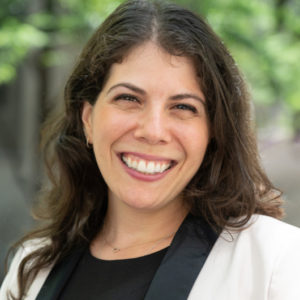Yes, We Can Implement a Free College Program. American History, and Our Values, Say So
December 18, 2019
By Ariela Weinberger
College affordability has been a major kitchen-table issue for American families for the past three decades. This is not surprising considering that college tuition rates have shot up since the 1980s: Tuition at public four-year colleges increased 213 percent from 1987 to 2017 and 129 percent at private not-for-profit colleges, helping drive the $1.6 trillion student debt crisis.
In the face of this crisis among others, including rampant inequality in higher education and beyond, proposals to create a national free or debt-free college program have proliferated. Every serious candidate in the Democratic primary field has a position on the subject, and there are multiple bills in Congress to make these proposals a reality. Not surprisingly, this big idea has fueled extensive debate about everything from what costs such a program should cover to whether a program to make college free for everyone is necessary or if a targeted program is more appropriate. The ongoing debate demonstrates widespread agreement that the cost of college has become a problem. In two new papers, the Roosevelt Institute lays out a framework for designing new policies that today’s affordability crisis demands.
In the first, A Progressive Framework for Free College, Roosevelt Program Manager Suzanne Kahn argues that the ongoing debate over free college must be rooted in values and should begin with policymakers clarifying the core purpose of any plan. For a free college proposal to work at the federal level, policymakers and advocates must be equipped with a solid understanding of how the values and outcomes they wish to achieve would be driven—or thwarted—by certain design choices. Kahn lays out the design questions any free college plan must answer and, drawing lessons from existing free college programs, offers one framework for how a federal free college plan could answer these questions in ways that uphold progressive values.
In the second paper New Ideas for Free College: Learning from the Landscape of American Public Goods, Kahn broadens her scope to find answers to policy design questions in the models of existing American public good programs. For example:
- Medicaid’s disproportionate share payments are a ready-made model for addressing concerns about unequal funding among institutions and the threat that free college policies could pose to private, minority-serving institutions;
- The Unemployment Insurance program’s experience-rating system for taxing employers offers a strategy for raising funds while disincentivizing credentialization; and
- The regulated utility model could keep tuition costs in line with what providing an education requires and prevent tuition from inflating in response to new federal funding.
Access to college cannot just mean the ability to enroll. To be meaningful and equitable, access must create the conditions that allow people to be able to succeed in school and after. To learn more about why we need bold public programs, read our New Rules for the 21st Century report.
To learn why this matters, and why the time is right for a values framework in the free college debate, read more from Roosevelt Editorial Manager Matt Hughes.
###
